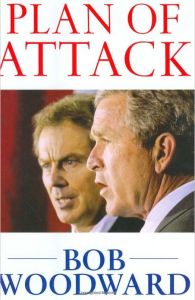Join getAbstract to access the summary!

Join getAbstract to access the summary!
Bob Woodward
Plan of Attack
Simon & Schuster, 2004
What's inside?
Bush decided on war in Iraq long before he told voters; Cheney and Rumsfeld knew but weren’t talking – until Woodward.
Recommendation
Veteran Washington reporter Bob Woodward continues to shine his lamp into the shadows of US political life. Woodward has an uncanny ability to present a point of view without appearing biased, perhaps because he approaches truth with a complex worldview and eschews viewing individual leaders as either particularly good or evil. Although you may not want to hear what he learned, Woodward interviewed more than 75 officials directly involved in the war on terrorism, including spending three and a half hours with President Bush. He found out that Bush considered, and then planned, war in Iraq long before voters knew, and that his chief advisors debated it vigorously. Right or wrong, he seems to say, Bush’s pivotal team members – Cheney, Rumsfeld, Powell, Franks – were entirely earnest. getAbstract strongly recommends this book to anyone who wonders how the US became the proud new owner of all of Iraq’s problems. It gives you a breathtaking behind-the-scenes understanding of the decisions, for good or ill, that led to America’s second war against Saddam.
Summary
About the Author
Bob Woodward was key in exposing electoral wrongdoing in the Nixon Administration during the Watergate scandal, as reflected in his first book, All The President’s Men, written with colleague Carl Bernstein in 1974. He has been a reporter and editor at The Washington Post for 33 years. He wrote nine No. 1 best-selling nonfiction books, including Bush at War (2002), an account of the US response to the attacks on September 11, 2001.





















Comment on this summary